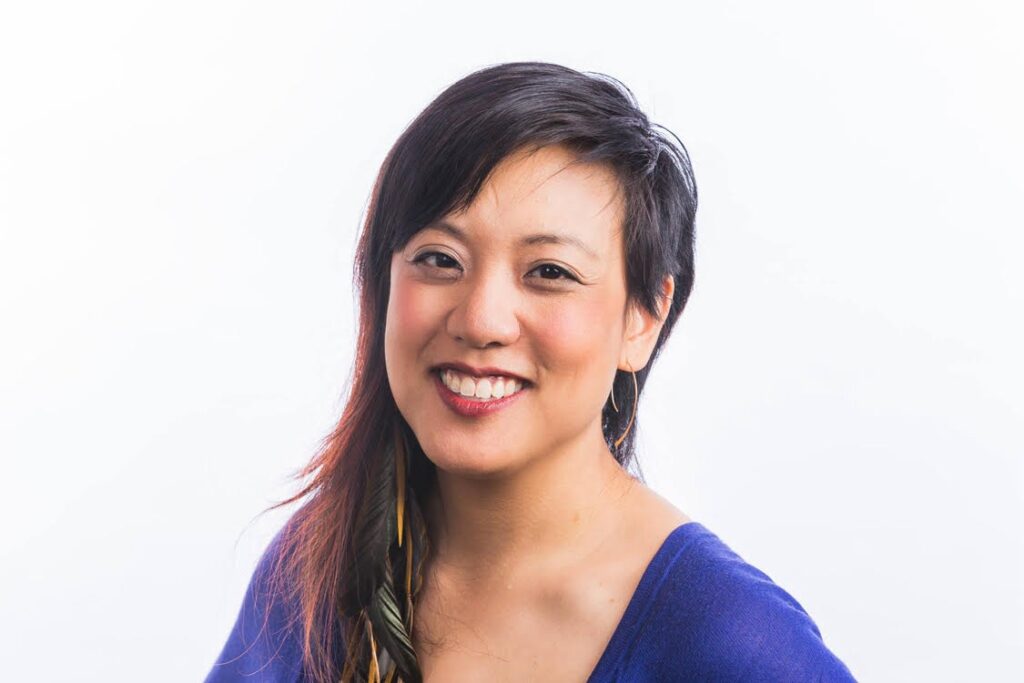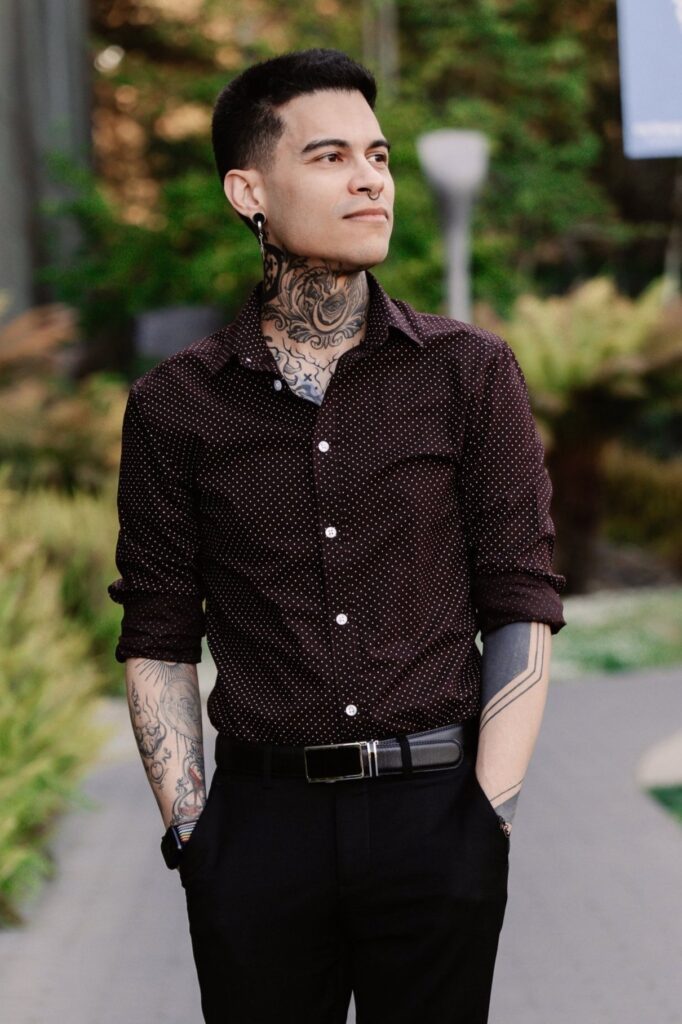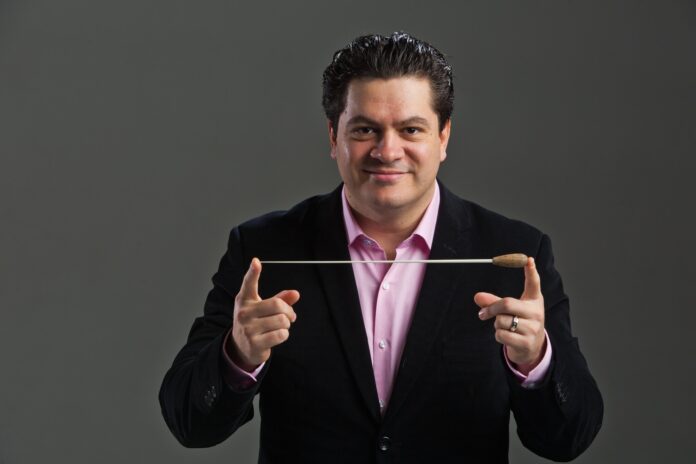Have you ever heard a parhelion? What does the Santa Cruz lighthouse sound like, translated into symphonic form? How does music made in West African refugee camps connect to that of the US? Is the concept of immigration holding back our development as a species? Prick up your ears and head down to Santa Cruz over the next two weeks to explore these questions with hundreds of other curious listeners.
Boosted by a surge of interest in eclectic sounds, contemporary music festivals keep sprouting up like fairy finger mushrooms through the fertile Redwoods forest floor. But the Cabrillo Festival of Contemporary Music (July 29-August 11), now in it 62nd year, is unlike any other. Packed with four world premieres, eight West Coast premieres—including Wynton Marsalis’ Trumpet Concerto—15 composers in residence, and an inaugural Creative Lab “featuring a new cross-disciplinary experience by Bora Yoon,” the festival reaches beyond the usual performer-audience encounter into something both larger and deeper.
“Cabrillo is the only festival of its kind in the world because the focus is not just on contemporary music and living composers, but on the compositions themselves, which are all of a symphonic nature,” festival music director and renowned conductor Cristian Măcelaru told me over Zoom. “That’s unusual because symphonic ensemble pieces require such a huge amount of collaboration, commitment, and organization—not to mention financial viability. There are composers, musicians, orchestras, and of course listeners coming from around the globe. It’s really tremendous.
“And because Cabrillo also stretches out over an entire two weeks and includes open rehearsals, you can watch these wonderful pieces evolve and grow before your eyes and ears. We don’t hide anything.”
Măcelaru was in Michigan on his way back from Interlochen Arts Camp, where he conducts the World Youth Symphony Orchestra, and had pulled his car over by a scenic lake for our chat. In 2017, he took over Cabrillo’s music direction from groundbreaking conductor Marin Alsop, who had led the festival since 1992.
“I was thrilled to be stepping into Marin’s footsteps when they chose me for the position, she is such an incredible musical force,” he said. “I have to say, though, that I hadn’t experienced Cabrillo before I started. In my first season I thought, Oh, you know, maybe a handful of people will come to the rehearsals, it’s just a way to listen to the music for free. I was completely wrong, and shocked that there were 300 or 400 dedicated people that would come to every rehearsal—and then buy tickets and come to the concerts as well. They wanted to see how a piece develops, and then to hear it at the final concert.
“I realized that it’s this kind of intensity that a festival of contemporary music really lives and dies by. You need to have audience that understands that on one hearing almost no composition will be able to make a statement. It’s so important to be able to hear everything two, three, four times: The more times you hear it, the more you understand it, the more you appreciate. So it’s amazing that we have this in practice. It grows a whole culture around a performance, a true collaboration with the composer. People really, really love it.”
When asked about something he’s particularly excited about this year, Măcelaru describes “Parhelion” by Korean-American composer, vocalist, and multi-instrumentalist. “I initiated the Creative Lab concept as a new way of exploring the avant-garde,” he said. “Each year I want to pick a composer, who is perhaps also a performer, who does their music a different way, and give them carte blanche, asking only that they reimagine what an orchestra does on stage. This year’s choice was Bora Yoon, who I met after seeing her singing and playing violin and percussion and just doing some really funky and unusual things at her shows.

“She came to Santa Cruz and was struck by the movement of the lighthouse, as something that keeps circling around. How it tied in with the movement of the sun, the tides, the light, the motions of the seasons. So she has created a whole piece. Basically, it’s a big experiment where everyone does something crazy. The musicians are placed all over the audience. There are lighting elements. There are multimedia elements. There’s live electronics. I mean, there’s all kinds of things.
“And there is so much adrenaline just looking at the page of what am I supposed to do as conductor. It’s totally unconventional, I’m so excited.”
The theme of this year’s Cabrillo Festival is “Music as Movement,” something that reflects the festival on a symbolic level, but also references contemporary social and migratory movements. “I have to be honest, I don’t come up with a theme first,” said Măcelaru. “First comes the music. Second, I find a way to incorporate things that make a statement, compositions and ideas that hold the festival together and really say something. Then a theme emerges—and we find ways to fill in the gaps that are missing.
“Really, truly, the first thing I was interested in for this year’s festival came from a conversation I had with [Puerto Rican composer] Iván Enrique Rodríguez. He was telling me about this opportunity he had to document the music of refugees coming in from West Africa. He said he really didn’t know too much about the music going in—he received some grant money and went to a refugee camp, and started writing down the rhythms and songs they were singing, documenting what these migrant people brought with them, ‘possessions’ of a very spiritual nature: your folklore, your past, your identity.
“He said he was shocked that a lot of these rhythms and expressions sounded like those back home in Puerto Rico, they were familiar from what he heard growing up. I said, ‘You know what? Would there be a piece you could write about this experience, and incorporate some of these ideas? Something that may initiate a conversation of how important it is to understand each other’s true cultural background, its uniqueness but also its interrelatedness, to celebrate how we are all both close and far away.”
The piece that ultimately resulted is “Casting the Dice,” premiering at Cabrillo on August 3, narrated by Rodríguez and using texts sourced from individuals around the world to “explore the lived experiences of those displaced, delving into the connections of immigrants and refugees with their homelands, and their personal journeys as they navigate new territories.”

Contiguous with that sentiment, the “Music as Movement” theme resonates with Măcelaru himself on a deeply personal level, as a Romanian immigrant.
“We are struggling with accepting and understanding the fact that migration is absolutely necessary to our existence as human beings,” he said. “The concept of ‘immigration’ has been in use for a much smaller amount of time, as with the concept of geopolitical borders. These things, these divisive barriers which we have imposed on ourselves, separate us. I want us to ask ourselves the question of migration versus immigration. Are they the one and same thing?
“And by imposing these crazy rules on immigration, are we also preventing the continuity of development for us as human beings? Because without sharing each other’s cultures, how can we continue to grow. Maybe because I was born in the Communist country this is very poignant to me, that I was not allowed to have a passport, and could not leave even to travel. The Hungarian border was less than a hundred kilometers away from my house, but we couldn’t cross the border. Right?
“It’s a problem we have in society today, because a lot of people, even good people, that I meet are like, ‘Well, everyone should just follow the rules.’ And I say, What are the rules when you’re faced with life or death? There are no rules. You can’t force someone to follow a rule who’s trying to save their child from dying. It’s just not applicable.”
Besides premiering some spectacular and ear-opening music, Măcelaru aims to catalyze that kind of internal search during the fest.
“I’m a strong believer that the arts have a purpose in our society. Not to give an answers, but to ask questions that force us to think about things in a different way, and perhaps to think more profoundly about things as well.
“I see this year after year, at the end of the festival,” he said. “There are so many people that continue having conversations about how to see the world in new ways—and throughout the festival, there is like a two-week long debate about the world through music. As musicians, we are fulfilling our social purpose to make statements, ask questions, and challenge people to see the world through different eyes.
“It’s wonderful. I really think this is truly the purpose of the art. At the time when Mozart was writing, people didn’t look at Figaro and say, oh, ‘Mozart is trying to teach us an lesson.’ They started talking about, Is it proper? What’s happening in society? What does this mean?”
CABRILLO FESTIVAL OF CONTEMPORARY MUSIC July 29-August 11, Santa Cruz Civic Auditorium. More info here.







